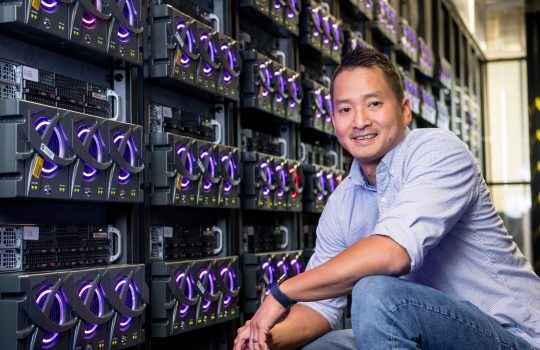Department of Energy announces $37 million for artificial intelligence and machine learning at DOE scientific user facilities
From the Department of Energy, Aug. 17, 2020: Seven DOE national laboratories, including Fermilab, will lead a total of 14 projects aimed at both automating facility operations and managing data modeling, acquisition, mining, and analysis for the interpretation of experimental results. The projects involve large X-ray light sources, neutron scattering sources, particle accelerators and nanoscale science research centers.

